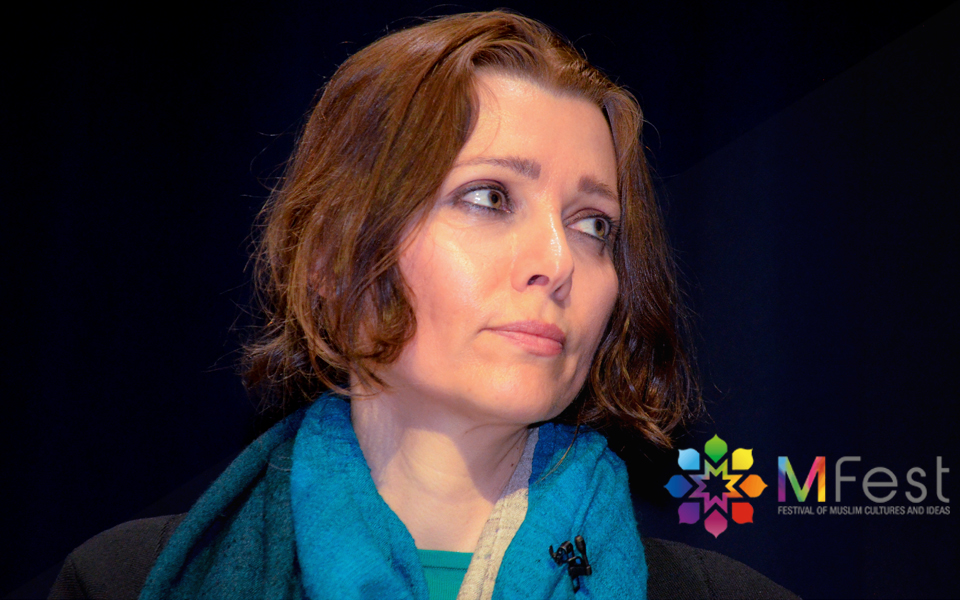A plea to accept different Muslim identities – “a manifesto of multiplicity” – was made by Turkish author Elif Shafak at MFest, London’s inaugural conference of Muslim Cultures and Ideas, which was held at the British Library from 27-29 April.
She talked about the two differing Muslim identities of her grandparents. “My paternal grandmother kept the Koran locked away in a velveteen case that we weren’t supposed to touch. Her notion of Islam was rules and regulation and a lot of fear. Then I came back to Ankara and my maternal grandmother was very different. The Koran was on the bookshelf and there was no thought that it was dirty to touch it on certain days of the month.”
She said she is frustrated when people make generalisations about Islam today. “My two grandmothers were utterly different. How can we generalise 1.8 billion Muslims around the world? We cannot lump them together as a static, monolithic entity. When countries slide backwards into nationalism, and religious authoritarianism, women and minorities have the most to lose. Why can’t I have multiple ‘belongings’? Why accept to be reduced to a singular identity. And I think at the end of the day this is what extremists on all sides are trying to push us towards– they want us to be reduced to a narrow, singular identity, so for me a manifesto of multiplicity is also a way of resisting that push.”
In a wide-ranging talk delivered without notes she spoke of the need for “plurality” and the power of fiction to help us understand ‘the other’. She believes it is important for children to have friends from different backgrounds and that it is important that “multiple stories are told – publishers should publish stories about Muslim women that challenge stereotypes”.
She said that she had a diversity of readers. “Most of my readers are women. They pass the books on and copies are read by five or six people. We connect through stories. Through stories ‘the other’ becomes understandable.
“Among my readers are people from all backgrounds who do not necessarily break bread together. But fiction can do this. So I have readers who are homophobic too, but who say they have been moved by a character who is homosexual. I think people are closed in the public space but more receptive in the private space of reading a novel – and I think we need that inner garden that Sufism talks about.”
MFest is sponsored by the Aziz Foundation which supports disadvantaged people and communities around Britain. Its director Tufyal Choudhury, a researcher and academic working on human rights, discrimination and social inclusion, says: “My conversations with political activists and community organisers leaves a sense that there are huge shifts happening as young Muslims explore the ideas and identities that will shape this century. A festival of cultures and ideas that recognises the complexities, differences and dynamics of Muslim communities helps us to celebrate and discuss where we’ve come from, who we are now and where our Muslim collectives can go in the future.”
On religion Shafak said that she didn’t call herself a Sufi, but is interested in “the dance of faith and doubt. As human beings we make progress when faith and doubt talk to each other. We need the voices of agnostics and misfits and mystics, we need all of them. At the core of Sufism there is no gender hierarchy – I think Rumi and Teresa of Avila and Meister Eckhart would all have happily broken bread together.”
She also noted that in her part of the world “most of culture is transmitted through women. My grandmother and mother handed down stories to me. But there needs to be more women in the public space, telling those stories and reshaping the narrative”.
There were many young women queuing to have their books signed afterwards, one or two in tears since this author undoubtedly has a kind of star attraction and a powerful presence.







